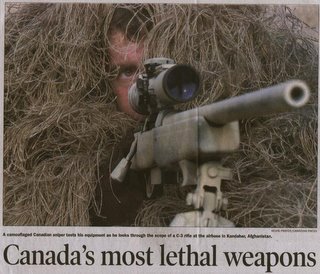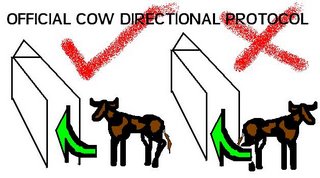Introduction: This is not really an essay so much as a reflection and comparison of recent and past foreign policy events of the United States. I have looked at history and compared it to today, coming to the realization that mostly it is just a language game that we play because it is hard to draw cause and effect relationships between one nation and the world, isolating it as a variable. Regardless of this consideration, I hope that there are certain lessons from history that can be learned and that an analysis of where "the land of the free" has come from and where it has gone is an interesting one. There is a vast bundle of literature on the subject of American "empire" of which I must credit Niall Ferguson's Colossus: The Rise and Fall of the American Empire."Be convinced that to be happy means to be free and that to be free means to be brave. Therefore do not take lightly the perils of war." -Thucydides
Did the World Change Much in 2001?Post 9/11, it became customary for the U.S. to deny that it was an imperialistic force. Maybe it was just the first time many of us started to make comparisons.
Within its own hemisphere, Washington has carried out wars in El Salvador, in Columbia,[1] and has a long history of domination in Nicaragua lasting throughout the 1980's to interfere with Nicaraguan politics fighting the Sandinistas. Throughout South America, the U.S. provided hundreds of millions of dollars of military aid to attack soft targets like peasants and farmers, imposing embargoes and planting landmines and mobilizing troops to quell rebellions or plant politicians in Bolivia, Panama, Los Angeles and Haiti.[2] Was this benevolence and order maintenance, or was it purely suppression of left-wing civilians to deliver the U.S. version of democracy?
 Nicaraguan graffiti in 1980 translates as:"if the Gringos (slang for Americans) intervene, the militias will stop them!" Courtesy of wikipedia.org
Nicaraguan graffiti in 1980 translates as:"if the Gringos (slang for Americans) intervene, the militias will stop them!" Courtesy of wikipedia.org
Within recent history, the U.S. had been guilty of military meddling abroad, including the assistance with NATO air strikes on Bosnia in 1995. In 1998, the Clinton Administration bombed the Sudanese Al-Shifa pharmaceutical plant which supplied around half the needs of the Sudanese, supposedly on the grounds that it was a terrorist "nerve" gas plant and in retaliation for African embassy bombings which were blamed on Osama Bin Laden and Al-Qaeda. In the same year, it also attacked Afghanistan training camps used by Islamic Fundamentalists. In Yugoslavia, it intervened against Serbian invasion and used air strikes in Iraq for not complying with weapons inspectors. In the process of "protecting" Kosovo in 1999, the U.S. managed to set up its largest military base outside of the U.S. -Camp Bondsteel.
If the U.S. had imposed its systems of government on other countries, it makes sense that it would want to bury its tracks, distancing itself from the idea of being responsible for any violent recourse that it could have avoided.
I Can't Imagine Why You'd Ask the Question
In 1983, during the Reagan administration and the Iraq-Iran war, current secretary of defense, Donald Rumsfeld went to Baghdad to visit with Saddam Hussein and Iraqi Foreign Minister Tariq Aziz as special envoy to the Middle East. Iraq was at a disadvantage. Although the US Government showed concern over Iraq's use of chemical weapons, they didn't talk about it. Rumsfeld's main mission was to build rapport with the country. Reagan had lifted them off the terrorist list and wanted to show Iraq that Iranian victory was not in their interest. The main issue of concern was Iran's access to the Gulf and Iraqis lack thereof. This meant that the logistics of oil transportation from Iraq would need facilitating. Rumsfeld suggested that an oil pipeline be built through Jordan by Bechtel (whose former CEO was then Secretary of State, George Schultz). With the amount of investment potential in Iraq, the US couldn't afford to let it lose.
Perhaps Rumsfeld was just seeking diplomatic ties for strategic purposes. Surely he wasn't planting the seeds of empire...or was he? Is it really that unimaginable? I suppose to "plant seeds" ignores that American Empire might already have been deeply rooted. When questioned by al-Jazeera correspondent twenty years later on April 29, 2003 whether the US considered itself an empire he responded: "We don't seek empires. We are not imperialistic. We never have been. I can't imagine why you'd even ask the question."
Well, I can. It is an interesting question.
But how can the man who is an avid member of the PNAC, (Project for the New American Century) not believe in the US as an empire? In its statement of principles, it refers to the US as the "pre-eminent" power. The PNAC encourages "global leadership" which requires "military strength, diplomatic energy and commitment to principle." It's funny to think that such a question would never have crossed Rumsfeld's mind. Such a situation where isn't US would be a global leader isn't necessarily the worst option we currently have as an international community, but it is well, unsettling to imagine a world where the U.S.'s already colossal military would need to be significantly increased and what it would be like once it was.
It is certainly arguable that the US has an imperial past. The question is: do empire and imperialism inherently have everything to do with each other? If they do, does imperialism still work the same way today as it has in the past from military occupation, to constitutional reform, to foreign investment?
A Look at the Past
During the Colonial era, the US successfully seized and expanded territory occupied by the Spanish, Portuguese, French and English. In the Caribbean theatre, after American forces destroyed the Spanish fleet at Manila in May 1898, they fetched the exiled Filipino Revolutionary Emiliano Aguinaldo to help them fight, giving their troops more time to arrive, fueling negative sentiment for their other colonial power: the Spanish.
In June the Filipino army entrenched the city and had the Spanish surrounded while the US troops were finally arriving. In August, the Spanish surrendered to the US after mere hours of fighting. The Filipino leaders had issued a Declaration of Independencdidn'tsed on the US model. Too bad they didn't have the knowledge of today's Haitians in acknowledging that "a constitution is made up of paper but the bayonet is made up of steel" for in October 1898, the McKinley administration revealed that it intended to annex the whole Filipino region.
The Treaty of Paris went through in December, ending the American-Spanish war whereby Spain officially handed over the Phillipines, Guam and Puerto Rico and put Cuba under its control. They then provoked a fight with Filipino soldiers and the Fillipino-American war began. Like today's wars, the US military was highly trained in warfare and greatly outnumbered the enemy. The Filipinos therefore were forced to turn to guerilla warfare and surprise attacks or "terrorism". The war was officially over in 1902 but it continued for years. In 1906 the Moro Massacre occurred, which consisted of shooting and blowing up 600 men, women and children for days, who were trapped in a volcanic crater on the island of Jolo. The US tortured, raped and, in the words of General Jacob Smith, were instructed to turn the place into a "howling wilderness." It killed a quarter of a million Filipinos, most of them civilians, while US soldiers suffered ten times less casualties than they had during the Spanish war -only 4,200.
In 1899, Rudyard Kipling had just written a poem warning the US of the responsibilities of building and maintaining an empire entitled "White Man's Burden." Within that year, the Colonial war between the Spanish and Philippines ended and the imperial wars both in the Phillipines (with the U.S.) and in South Africa (the Boer War) began. Kipling's poem was popular in the U.S. but as many like Senator Albert J. Beveridge from Indiana were wont to think, their mission had been ordained by a higher power: "God has not been preparing the English-speaking and Teutonic peoples for a thousand years for nothing but vain and idle self-contemplation and self-admiration.
He has made us adept in government that we may administer government among savage and senile peoples." Many incorrectly interpreted Kipling's poem as a rallying cry.
Just as there is much anti-American sentiment now over the way it bullies, so was there then. Members like Mark Twain, Andrew Carnegie, Charles Francis Adams and William James were part of the newly formed New England Anti-Imperialist League in Boston opposed the war. [4]
Does Might Make Right or Is Hard Power Weak When it Comes Down to it?
Jonathan Schnell critiques the argument that America is an "empire" on the basis that although America's military might is unmatched in this world, it has not yet gained political power. Perhaps the PNAC has achieved the firsthasn'tf of its commitments to strengthen its military but it hasn't yet achieved "moral clarity."[5] A first step to gaining credibility and international support would be to restore order in Afghanistan and Iraq. However, as Schell argues, by the time Iraq has the kind of power to govern itself, it may be just in time to throw the US out.
Unfortunately, to have the idea that the US would be kicked out of anywhere seems to "misunderestimate" Bush and his administration. True, they have already suffered thousands of casualties in Iraq alone but they can always recruit more soldiers and beef up supplies. For example, Bush defended his plan to deploy 6000 National Guard troops to secure the U.S.-Mexican border against illegal immigrants against critics who said it would strain military capacity. While Canada has trouble justifying troops for the Darfur region because its mere 2,600 troops (as of May 2006) in Afghanistan aren't enough to go around, the U.S. has no problem approving military assignments in Afghanistan, Iraq and coping with natural disasters at home, including Hurricane Katrina (or so it claims). [6] Originally the war was supposed to be a simple regime change mission. Now it looks like the occupation will require another decade at least to ensure "security" (about 90% of the casualties have been civilians) for Iraqis and the West alike. Might the U.S. die slowly in an unbeatable war of attrition?

Canadian Press Photo, Feb-11-02[8]
If so, perhaps many of us will die with them. Now that the new Conservative government has risen to power in Canada, it looks like we're going to be further dragged into any conflicts that the U.S. initiates, thereby tarnishing our international image as a peace-keeping nation even more. Canadian soldiers are now being revered as war heroes -a surprising phenomenon, an example being Maclean's May article about how Canadian sniper Rob Furlong just made a new long distance record -the longest since Vietnam, for shooting a Taliban fighter from 2,430 m -more than 2 1/2 kilometers away.[7]
Citing anti-colonial sentiment in Iraq as the most recent reaction to empire-building America, it is clear that despite its talks of handing over power to the Iraqis, it does not yet exercise the political power required to do so. If this war is anything like the wars in the past, the Philippine-American war being an example, maybe the US never really plans to hand over power at all.[9]
Schell says that the US doesn't exercise political power there but neither do the Iraqis. Isn't power then, relative to how much technology, military, culture and policy there is? As long as lawlessness and disorder continue, the Iraqis are captives in their own country. It may be political chaos for both sides but considering that the most powerful force there is the coercive force of the military occupation, couldn't that be considered a political power? If people are afraid or discouraged to vote, disenfranchised and thus unable to work or they act differently than they would were they to have proper resources that a governing government would grant them, can it not be said that they are ruled because of their powerlessness and by the relative power of the US military?
We can see that the organizing force of the Iraqi government is driven by Coalition members. Since the overthrow of Saddam Hussein there have been four governments in Iraq.
First there was the Coalition Provisional Authority (led by Paul Bremer and the US), which technically had judicial, legislative and executive power over Iraq for over a year! Citing UN resolution 1483, the CPA was legitimately in charge of Iraq's oil revenue which it could spend on redevelopment under the discretion of the International Advisory and Monitoring Board.
Then on June 28, 2004, the Iraqi constitution came into effect and power symbolically transferred to the "sovereign Iraqi government" or an "Iraqi Interim Government" whose members were appointed by UN envoy Lakhdar Brahimi on June 1, 2004.
In May 2005, an Iraqi Transitional Government was elected.
On Oct 15, 2005 a permanent constitution was elected by a referendum and on Dec 15, 2005 the National Assembly was elected to form a new permanent government to last until 2010.
In the preamble to the Iraqi constitution, it says: "Terrorism and takfir (declaring someone an infidel) did not divert us from moving forward to build a nation of law. Sectarianism and racism did not stop us from marching together to strengthen our national unity, set ways to peacefully transfer power, adopt a manner to fairly distribute wealth and give equal opportunity to all." [10]
Yet sectarian violence continues to plague the country and paradoxically, by invading Iraq without UN approval, international laws were broken in the process of "moving forward to build a nation of law." President Jalal Talabani reported that over 1,100 were found in Baghdad for the month of April 2006 "victims of executions.[11] Iraqis, especially Sunni Muslims, worry over whether the Interior Ministry will continue to be led by the Shiite majority, who they say are using death squads to target them. The transfer of power has been all but "peaceful" and there is not much wealth other than the foreign-owned oil wells to distribute "fairly." So the preamble to the Iraqi constitution pretty much just amounts to a lie.
Can we be Re-sold on America?
The Bush administration may be preparing to regain that kind of credibility and renew faith in the Republican party in the face of new fears as his rein is down to its last days. Even though Iran hasn't broken any international treaties, including the Non-Proliferation Treaty protecting against the spread of nuclear weapons, Iranian leader Mamoud Adimadinejad has called for Israel to be "wiped off the map." The January 2006 Hamas victory also raises huge concerns about the fate of Israel as a place of Jewish settlement.
In reaction to the US freezing assets and preventing the flow of hundreds of millions of dollars of aid money, 10,000 Palestinian demonstrators gathered, chanting "death to the United States" and collected money from donations to try to support 160,000 governmental employees who have gone unpaid. A pro-Hamas group's slogan read "better hungry than humiliated" reflecting such a strong nationalism that it is worth dying for, according to some Palestinians. [12]
Israel sees Iran as the biggest threat they have to security and so it is no wonder that the U.S. is opportunistically looking for an enemy to prove its strength, threatening to use nuclear weapons themselves if necessary. So the U.S. will threaten without impunity, but will it change the decisions of defiant leaders and the masses?
Even though Iran claims that its uranium enrichment facilities are for peaceful means, the U.S. seems either not to believe them, or they want to cause suspicion in others. This is reflected in the fact that the Non-Nuclear Proliferation Treaty was no longer good enough for Bush who sought to legislate a new treaty on May 18, 2006 at the 65 nation assembly Conference of Disarmament in Geneva. The Fissile Material Cutoff Treaty (FMCT) "bans
the production of fissile material for use in nuclear weapons and other nuclear explosive devices." This move undermines the power of the International Atomic Agency's ability to police nuclear proliferation. They have been consistently monitoring the situation the whole time. It won't affect Korea, who already has nuclear weapons and for whom it would be unenforceable to punish them for breaking restrictions. What this new treaty allows is a vague enough definition of restrictions to allow the U.S. to go to war against Iran; for after all, how do you determine the intent behind developing fissile material, whether it be for nuclear power or nuclear destruction? It's not that the U.S. is limiting itself from producing uranium and plutonium for their own weapons; it's that they have the power to deny others that right and enforce things with serious consequences when they don't.
Hamid Eslamizad, a senior Iran official at the Geneva mission correctly noted that the U.S. decision was similar in flavor to its previously bogus accusations of Iraq for having WMD's before it invaded the Middle East. [13]
Rising Dissenters
Venezuelan President Hugo Chavez has been vocal of his American dissent. At a conference speaking to socialist activist groups in Vienna after a summit of European and Latin leaders, he urged other countries to "confront the empire and denounce it...
The U.S. empire is coming to an end," he said. He was offering his oil to European countries in poverty needing winter heating fuel. [14] Bolivian President Eva Morales has also sought to protect his oil from greedy U.S. hands.
On Tuesday, May 16, 2006, Hugo Chavez signaled revenge by suggesting it would negotiate with Iran to sell its U.S. made F-16 fighter jets as a response to the arms ban imposed by the U.S. a day earlier, which had been refusing to sell parts required for upgrades before then. According to U.S. State Department figures, Venezuela bought $33.9 million worth of planes and military supplies in 2005. [15]
The next day, Chavez went on a private visit to London to thank the Parliament and the unions for their support in the Bolivian Revolution. He met with its mayor, Ken Livingstone, and was questioned by CNN, Reuters and other media networks. DPA asked Chavez about whether he has plans to cut the oil flow to the U.S. if it invaded Iran and about whether he was interested in monopolizing the industry. He interrupted the reporter to point out that the idea of Venezuela as the imperialist nation was most likely fabricated in Washington. He goes on to justify his criteria for trade, distinguishing his country from the U.S. as one that is:
"putting forward an international policy of respect for the sovereignty of states, of the people, and also opening channels to establish a new mechanism for integration, based on solidarity, above all solidarity; based on true cooperation, on economic complementation, with respect for institutions, for international law, which is what is not recognized in Washington: how they violate international law, how they dominate, how they commit aggression against the world from Washington! That is were the real empire is, and now they want to accuse Venezuelans as imperialists or of launching strategies of domination, or monopolies. Monopoly us? We are fighting against monopolies, we are fighting against imperialism." [16]
The New World Order
These are just a few examples of countries that squirm under the second phase and demonstration of the laws of the New World Order whereby journalists and states are quick to attack preemptively without UN approval, as justified by heightened paranoia due to the prominence that terrorism has taken in the media. An example of how moral questions are spun to justify security initiatives is the U.S. position on Iran. Even though Iran has not yet enriched uranium to the point where they could feasibly make nuclear weapons, their ties with other terrorist organizations and allies would ensure that the backlash from such a bomb attack on Iran would be detrimental to the security of Iraq, Israel and the rest of the Western world. These threats coupled with the fact that Russian economy is going to hell may suggest we're heading towards another Cold War.
There are many different definitions of an "empire". It can be a multi-ethnic state ruled by a central authority or a state with imperial aims but a distinguishing feature of an empire is that its political structure is held together at least partially by coercion. Most empires come into being by a military domination of peripheral states. If we were to compare these characteristics of empire to the US situation, it could be categorized as a discontinuous empire because the regions that it rules (indirectly) are overseas. These are disconnected places like Germany, South Korea, Japan, Italy where there are over 150,000 troops. These countries have autonomous self-government, unlike Iraq. It cannot be said that they are part of a US "empire" however, what the numbers show is that the US still sees a benefit in occupying and coercing these countries and empires can be informal in nature. Its influence might be to deter these countries from building up their militaries, to monitor their policies and literally keep a 'foot in the door'. There are another 150,000 across the Middle East in places like Iraq and Afghanistan. [17] Think about what this does to citizen's own ability to organize a government representative of their own interests.
There are other forms of coercion that play into politics including aid and strategic alliances. The US emerged from WWII as a "superpower". With its might, it can afford to give the decisions of other countries extra power, or take it away from them. It has recently promised to help India with supplying nuclear energy while it condemns Iran for their scientific progress in attaining enriched uranium. It has quite a burden in ensuring that Taiwan has independence from the Republic of China, who still contends that it is one of its provinces, with the responsibility to attack if China invades. The British Empire used to have the strongest navy in the world but couldn't compete with the other powers after being so strained after all its wars. It became the America's strongest "client state", supporting it during the Cold War against the Soviet Union and now supports the US, not vice-versa in fighting the "war on terror".
Well, the "war on terror" is starting to show its price at home. The American citizens now know that their government uses widespread wiretapping to spy on them and that it sends detainees to secret prisons abroad. According to the Foreign Intelligence Surveillance Act of the 1978, the President is not above those required to get a warrant to conduct domestic wiretapping, however, Bush admitted he directed the NSA to do it post 9/11.
Therefore, the administration uses illegal means to enforce illegalities and leaks of information, begging the question of what justice really is. The "war on terror" is quickly transferring into a war on the freedom of speech, with the Geoffrey Stone, a law professor at the University of Chicago noted in a letter to the New York Times Monday, May 8, 2006 that despite age-old tensions between the government and the media "presidential administrations have never been inclined to criminally prosecute the news media for publishing information they would rather keep secret" yet this one has. They have threatened to prosecute the Times for its report on U.S.'s secret prisons. [18]
Helen Thomas uses a key word to describe the style in which the U.S. is currently conducting political matters in her article "Bush defends spying on Americans" stating: "Bush imperially defends his legally questionable order, claiming it is his inherent right as commander in chief." [19]
When did the US shift from a republic to an empire?
Some argue that it has always been an empire. It was an offspring of the British Empire, and then when it declared independence it was still an empire of sorts, relying on African slaves.
The modern word "republic" comes from the latin res publica which can be translated as "public affairs". A republic is a state or country with autonomous rule of law that isn't a monarchy and makes no claims to controlling territories or citizens outside of itself. The political power is not based on an abstract principle of power but rather constitutional forms of governing those people within that state or country. [20]
During the early sixth century, the Roman Empire spent a lot of time fighting the Etruscans, the Carthaginians and then the tall blonde Gauls. There was also a struggle for power during this time up until 287 BC between the patricians and the plebeians, or the aristocracy and the common people. The endless wars that Rome fought were its fall. And it had already stretched itself thin with the possession of Sicily, Spain, Sardinia and Corsica. What the constant fighting and the development of governance in the rule of the Senate did was to create the ideal Roman characteristics as simplicity, practicality and dutifulness to god, state and family. But it was the Greeks that Rome captured who were the real capturers because of their superior intellect. They ruled the Romans by the fact that the Romans depended on them as their tutors and educators. [21] Is American culture destined to produce equally simple, unquestioning citizens of us? If so, what would be different beside materialistic advantage, between us and the citizens of the Dark Ages?
 Photo Source: National Public Telecomputing Network (NPTN)
Photo Source: National Public Telecomputing Network (NPTN)
This is a picture of Marquis de Lafayette, who wrote "The Declaration of the Rights of Man and of the Citizen" with help from American envoy to France, Thomas Jefferson. It approved by the National Assembly of France on Aug 26, 1789. Lafayette was instrumental in helping America defeat the English in the American Revolutionary War, or the War of Independence.
The wars of Independence and the American Civil War were some of the bloodiest in history. The whole time, they were killing their own people for an intangible thing: freedom. Why is it then that freedom has such a high price and when does the philosophy of live and let live convert to a form of liberty which is more controlling than it is
liberating? The point is: there has to be some balance in bettering society by having both the means to advance socially, culturally, materially, but then that they have the will to do so as well.
In an Islamic republic, state laws are meant to be compatible or dependent on Muslim or Sharia law. The Islamic Republics of Iran, Afghanistan, Pakistan and Mauritania are all different examples. Obviously the rationale behind a conservative political structure is that things are kept simple, each citizen requires little, life may be hard but it is manageable. Nothing gets too far out of control. In Iran's case, the leader is directly voted into power by the citizens. It is seen as a more theocratic government than the Islamic Republic of Pakistan, which is partially secular and where in practice, laws of state tend to override laws of religion.[22]
In Afghanistan, the Taliban forbid educating women or allowing them to take jobs. The Seattle Times reported a case where they executed a man in front of his family for teaching boys and girls alike.[23] This is the result of them trying to enforce an extreme version of a "pure" Islamic state. The U.S. and its allies sees its mission as bringing democracy and human rights there. However, because they have become desensitized to the regular deception and psychological games that enemies play, they have hardened to the fact that there are no rules that govern war. There have been countless examples from Abu Ghraib to Guantanamo Bay, which the U.S. has played a direct part in. Now that there's been a crackdown on prisons such as Guantanamo, where there are cases of detainees being imprisoned for years without even being charged, the U.N. has tried to negotiate a deadline for prisoner's release. However, it is a major issue what the fate of these prisoners will be. Albania is one of the countries that has accepted them, where they have been dumped, expected to figure things out for themselves. There continues to exist many secret detention centres alleged to be used for torture in Eastern Europe among other places as of May 2006. [24]
Since the Taliban also banned listening to music, American soldiers have tried to use this to their advantage by blasting the Rolling Stones or whatever music they have to try to lure them out of their caves. They have tried to do everything insulting to Islam because it is psychological warfare too, reinforcing the fact that Geneva conventions will be overstepped in an effort to gain an assault on the enemy. What other choice do American troops have when there is no way of distinguishing the enemy other than by figuring out who might be shooting a gun? Dateline reports of U.S. soldiers in Gonbaz, Southern Afghanistan burning the bodies of Taliban fighters killed the night before, using a loudspeaker to shout taunts and facing the bodies towards Mecca, a purposeful blasphemy to Islam. [25]
It seems that the U.S. may be able to overpower other nations in the short-term through the use of intimidation, psychological scare-tactics and economic sanctions yet surely they do not want to be stationed in politically volatile places like Iraq and Afghanistan forever. What their goal would be is to encourage dependencies on Western forms of economy and governance, allowing U.S. businesses to open up and function relatively identically regardless of what country they were in, without regard for regional culture.
The US seems to be one of the biggest promoters of globalization. On Feb 23 2006, President Bush said when speaking to the Asian Society at the Doha Rounds, said that it "provides the greatest opportunity to lift hundreds of millions of people out of poverty, and to boost economic growth across the world." That's quite an optimistic view! But after the 1997 Asian financial crisis and in Argentina and Brazil in 1999 and 2000, the continuing setbacks of WTO negotiations post Hong Kong and high subsidizations in developed countries that cause developing countries to try to cut corners and operate corrupt sweatshops to undercut competition, there are enough reason to have a jilted view of both free trade and globalization.
In the US, the strength of anti-globalization sentiments is growing as the economy spirals downward and jobs are outsourced to foreign nations. As globalization takes on a non-Western face, perhaps the anti-Americanism will change too, but then we will have helped the cause of our own doom. Globalization increases both competition and dependence on other nations. It can be tough for the World Trade Organization to regulate all the agreements going on at once. Evidently however, while the American empire declines, it will be heavily populated developing countries like India that will garner much more power in the next few decades. We are sure to see a rise in economic dominance of Asian countries like China.
So in a world increasingly like George Orwell's Nineteen-Eighty Four, it is questionable whether it is desirable for our own protection that we are spied on, manipulated and fed propaganda so that we may support the "war on terrorism" or whether freedom is worth being a bad citizen and risking being abducted to some secret prison somewhere. The U.S. is an empire in this respect in that it dominates our thoughts, actions and the headlines with its decisions -it has colonized our minds. There are many cases of "double speak" and double standards whereby the leadership of the governing body is an exception to the rules, where 'elitism' runs rampant and where the President takes on the role of protecting his citizens, reminiscent of Kipling's "White Man's Burden" more than a hundred years later, even if that means concealing the truth. Perhaps we should have known we were coming to this, realizing that the way we treat the environment itself is unsustainable. A Marxist reading of history would just explain this as the strongest preying on the weak in a competition for material survival. If anything though, the thing that may save our souls is enlightenment -to know our own history, so that as a global society, we act consciously. Even if mistakes are doomed to happen, we should still nurture the hope that we are entering the future with open eyes and that the burden is for all of us to share.
Citations:
1. http://www.thirdworldtraveler.com/Latin_America/StopWarColombia.html
2. http://www.neravt.com/left/invade.htm
3. http://www.wsws.org/articles/2004/mar2004/iraq-m19.shtml
4. http://www.globalpolicy.org/empire/history/2003/nov2003kiplingempire.htm
5. http://en.wikipedia.org/wiki/Project_for_the_New_American_Century
6. http://www.msnbc.msn.com/id/12817488/
7. http://www.macleans.ca/topstories/canada/article.jsp?content=20060515_126689_126689
8. http://www.sniper.ws/photogallery/Sniper_Canadian_Afghanistan_2002_Feb_11_Van_SUN.jpg
9. Schell, Jonathan "America’s Vulnerable Imperialism" Yale Global, 24 November 2003 http://yaleglobal.yale.edu/display.article?id=2873
10. http://en.wikipedia.org/wiki/Constitution_of_Iraq
11. http://www.msnbc.msn.com/id/12719344/?GT1=8199
12. http://news.yahoo.com/s/afp/20060505/wl_mideast_afp/mideastpalestinianpoliticsdemo
13. http://www.theglobeandmail.com/servlet/story/RTGAM.20060518.wusnuike0518/BNStory/International/home
14. http://www.bloomberg.com/apps/news?pid=10000086&sid=ayTf7G2G6d50&refer=latin_america
15. http://www.msnbc.msn.com/id/12818045/
16. http://www.zmag.org/content/showarticle.cfm?SectionID=45&ItemID=10284
17. http://en.wikipedia.org/wiki/United_States_armed_forces
18. http://seattlepi.nwsource.com/opinion/269904_thomas12.html
19. Thomas, Helen. "Bush defends spying on Americans" The Record Monday May 15, 2006.
20. http://en.wikipedia.org/wiki/Republic
21. http://mars.wnec.edu/~grempel/courses/wc1/lectures/11republic.html
22. http://en.wikipedia.org/wiki/Islamic_Republic
23. http://seattletimes.nwsource.com/html/nationworld/2002720193_webafghan04.html
24. http://www.atimes.com/atimes/Front_Page/HE17Aa01.html
25. http://news.sbs.com.au/dateline/index.php?page=transcript&dte=2005-04-06&headlineid=1036
Politics










